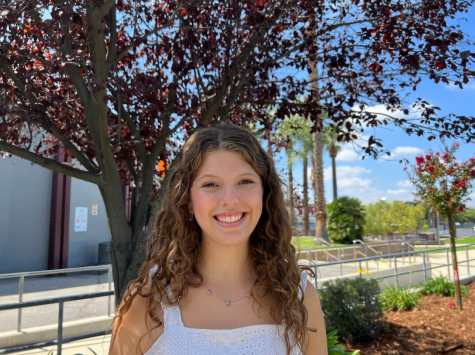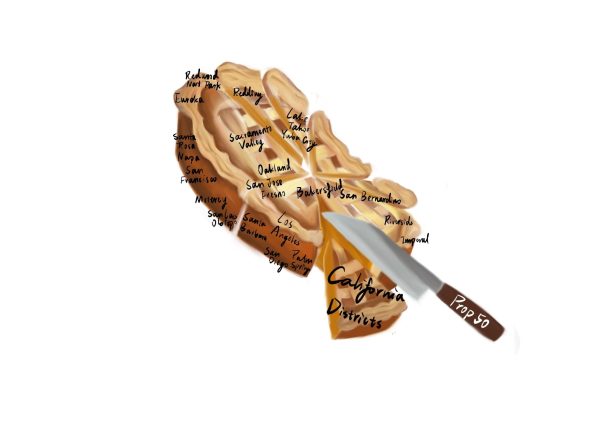CHS Young Democrats club working to reform systemic issues in high school curriculum in collaboration with Pitzer College students
The officers of the CHS Young Democrats Club meet over Zoom to discuss their collaborative project with the Pitzer College students
The CHS Young Democrats club has always been dedicated to ensuring a more ideal, democratic future. In the past, the club has worked closely with the Democratic Club of Claremont to hold informative lectures from guest speakers on various pressing matters, including gun control and health care. Members of the Young Democrats would also participate in volunteering opportunities, such as phone banking for an upcoming election or organizing a climate change protest. Additionally, the club has recently begun holding an educational book club. This year, the club will be partnering with Pitzer College’s Organizational Theory class, with a new goal: developing and implementing an ethnic studies course at CHS.
Pitzer College’s Organizational Studies major is dedicated to analyzing the operations of set organizations and their influence upon society. Organizations are essentially a group of people connected through a specific purpose, such as a workplace, church, school, or household. Oftentimes, those within organizations become unhappy with existing dysfunctions, for instance, an over dominating leader or a constant withholding of essential information within the status quo.
The Orgazantial Studies Theory course, taught by Professor Barbara Junisbai, uses data to theorize improved existences of these organizational spaces by eliminating their toxic aspects. This year, the CHS Young Democrats club is one of the three partners working with Junisbai’s students on a community-based project that will apply their discovered theorizations. The purpose of the Young Democrat’s project is to develop an ethnic studies course syllabus that will be used to design a class at CHS. For the project, one group of Junisbai’s students will be researching the ethnic studies programs offered at other schools to develop the best possible model for CHS. Another group of her students is focusing on developing a plan to implement the syllabus for the class. The Young Democrats and Organizational Studies students held their first collaborative meeting on Friday, October 16.
“This process is truly a collaboration, where everyone gets to learn something,” Junisbai said.
With the recent attention placed on eliminating racial injustice, Junisbai believes that the first step towards change should originate within the local community. An ethnic studies class at CHS would give students exposure to crucial material and discussions that may not occur at home or in other classes surrounding past and present racial inequality. As Jusnbai’s students’ research and decide the specific curriculum to be taught in the class, they take into consideration that CHS is a predominantly white institution. They hope to create a course that leads to an amplification of the voices of students of color, and build an overall more inclusive learning environment. Though ethnic studies is often offered at the college education level, Junisbai emphasizes the importance of enriching social consciousness from a young age.
“There is a lack of empathy and compassion in our society right now, and a lack of understanding of the ways inequity and differential access has historically affected communities very differently,” Junisbai said. “If we don’t have that understanding, it feeds into our democracy.”
The Young Democrats club, along with Junisbai and her students, firmly believe the material that will be consumed within the ethnic studies class to be an indispensable component of education. In a typical high school history class, the social change created by people of color is hardly touched upon, despite their impact on today’s society. The ethnic studies class will provide a voice for these silenced, but essential stories, and increase inclusivity and empowerment at CHS.
Hello there! Our goal is to provide relavent, engaging journalism for readers of all ages. Your donation will support the student journalists of the Wolfpacket at Claremont High School, and will allow us to purchase equipment, print our monthly issues, and enter in journalism competitions. We appreciate your consideration!

Melina Tisopulos is a senior and the Editor-in-Chief of The Wolfpacket. Melina loves to write and intends on studying journalism or English in college....

Asiya Junisbai is an Opinions Section editor that has been with the Woflpacket since her sophomore year. As a senior at CHS that is finishing high school...






